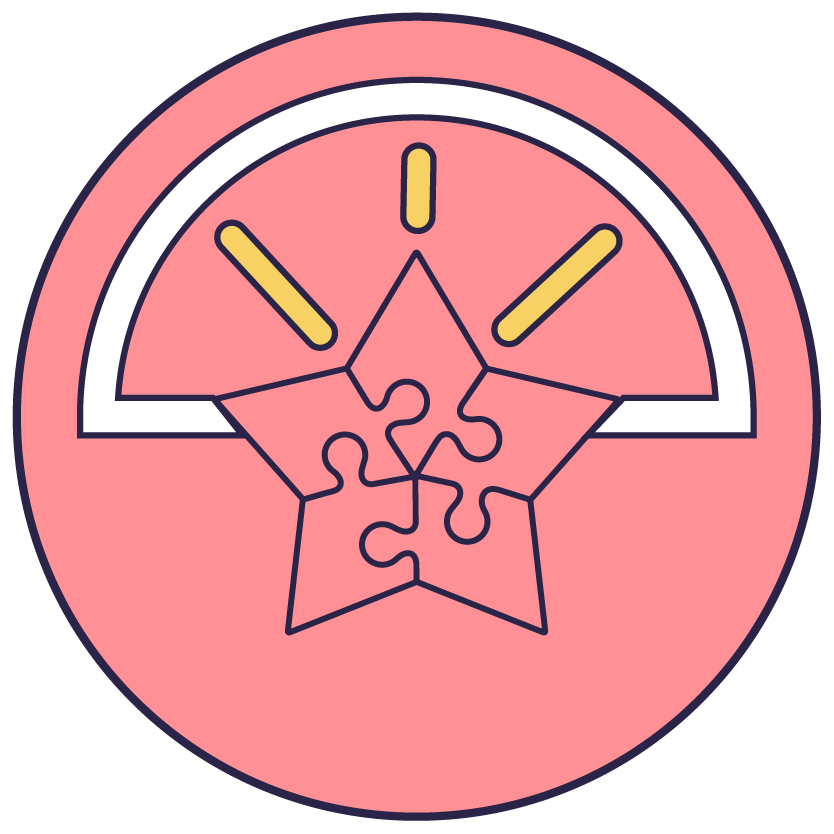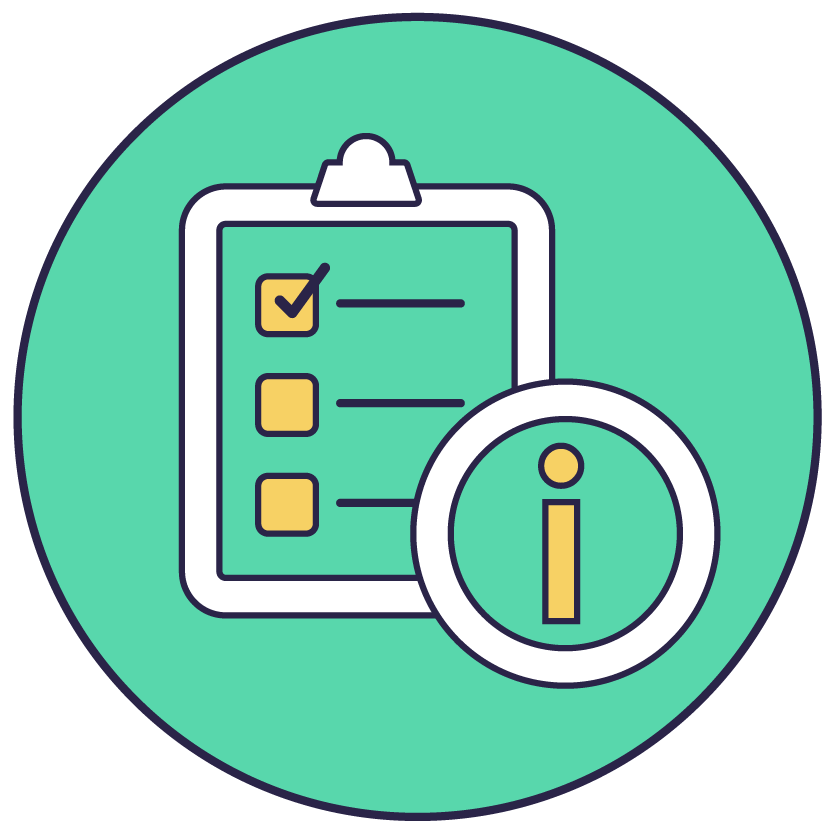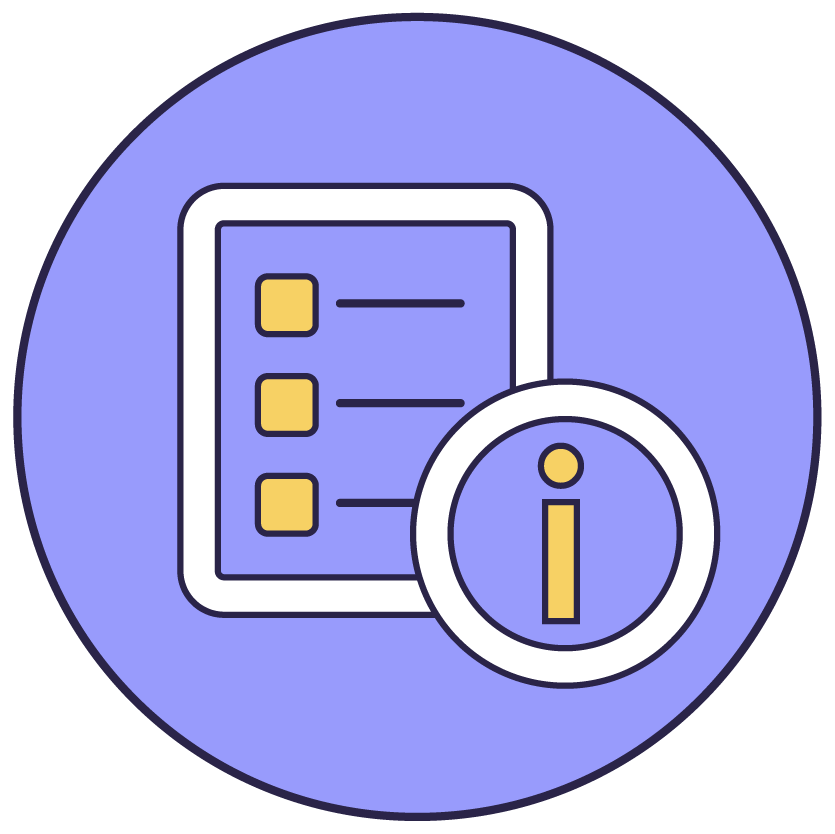We believe that workplaces are energised by the contribution of employees from all parts of society, leading to more responsive and inclusive policies, programmes, and services. People are central to our business and it is our priority to recruit a high-calibre and diverse workforce to deliver responsive and inclusive public services for the people of Ireland.
The large majority of Civil and Public Service roles are recruited through large volume recruitment competitions (Temporary and Permanent Clerical Officer, Executive Officer, Garda Trainee, Prison Officer, Third Secretary, and Administrative Officer / Graduate roles, amongst others). For specific Professional, Technical, and Management positions we recruit on a tailored basis throughout the year.
As recruitment competitions for many positions across the Civil and Public Service usually attract a high number of applicants, candidates are therefore required to undertake a range of relevant assessments and exercises over several selection stages. We use a demand-led approach which means candidates may be progressed in batches (i.e. groups of candidates at a time) through the various assessment stages at different times, based on the number of vacancies that arise.
Candidates successful at the final stage of the process are usually placed on a ‘panel’, where they are ranked in order of merit (i.e. ranked in numerical order based on their performance/score at final stage). Candidates will be taken from this list in order and offered a job or ‘appointment’, as vacancies become available.
Typical Recruitment Timelines
Timelines will vary depending on several factors including, but not limited to; volume of applications, number of vacancies, and resource availability due to volume of other live competitions at a given time. Panels are typically active for approximately 18-24 months and candidates can come under consideration at any point. However, there is no guarantee that being placed on a panel will lead to a job offer. The number of roles allocated from a panel depend on the number of relevant vacancies that arise in that time period.
Large volume recruitment competitions for general grades such as Temporary or Permanent Clerical Officer, Executive Officer and Administrative Officer can take several months due to the significant number of applications typically received. Candidates generally progress through each stage of the recruitment process in batches. Your batch number will be determined by the score you achieved in comparison to other applicants, at the stage of the competition. Candidates who score higher, progress more quickly.
Stages in Our Recruitment Process
Our recruitment process can vary greatly depending on the specific position or type of competition. The recruitment process may comprise of several stages, which are outlined in detail below. It is worth noting that not all stages of the recruitment process are used for every position. In addition, the below list of potential assessments are categorised but not necessarily in chronological order. Additional tests and exercises considered suitable may also be incorporated into the recruitment process.
Prior to each stage of the recruitment process, you will receive an invitation via your publicjobs.ie message board. Once you have accepted an invitation, you may receive familiarisation material, documentation, or the names of the Board Members in advance.
Please note that while we do our best to only call candidates forward to a panel where the demand exists, it does not guarantee you will be offered a position, as your place on the panel may not be reached if demand is lower than initially envisaged.
As our recruitment process, particularly for large volume competitions, is complex and often consisting of multiple batches progressed over a period of time, it is strongly advised that you refer to the Competition Information Booklet for each recruitment competition to determine that you fully meet the eligibility requirements before applying or undertaking any of the various assessment stages.
Glossary of Terms
- Large Volume Competition: These are competitions that typically receive a high number of applications to fill a large volume of vacancies.
- Competition Information Booklet: Each competition or role has a Competition Information Booklet which will provide details on the role, employing authority, eligibility requirements, recruitment process and remuneration.
- Recruitment Process: The recruitment process is the list of assessment stages outlined in the Competition Information Booklet.
- Eligibility: All roles have a unique set of eligibility criteria which will be outlined in the Competition Information Booklet for that role. Candidates must meet all the eligibility criteria, e.g. having particular types of experience or a particular qualification, or they will not be appointed. The onus is on the applicant to ensure they meet all eligibility requirements outlined in the Competition Information Booklet.
- Assessments: Assessments are the various tests, interviews or processes utilised during the recruitment process. Each potential assessment stage is outlined in the stages in Our Recruitment Process section.
- Stages: Stages are the steps and assessments that are involved in the recruitment process from application through to assignment. Details on the various potential steps and stages that can be utilised are found below.
- Familiarisation Material: At different stages of the recruitment process, you may receive familiarisation material to help you become familiar with the layout and style of an upcoming assessment.
- Streams: Some competitions are separated into a sub-set of streams each with differing eligibility criteria. An example of this is ‘Open’ (the general public are eligible to apply providing all other eligibility criteria are met) and ‘Interdepartmental’ (only civil servants are eligible to apply providing all other eligibility criteria are met). Candidates may be assessed once at each stage for one or multiple streams or undertake additional assessments for a particular stream. The Competition Information Booklet will outline the recruitment process involved.
- Batches: Batches are a sub-set of successful candidates who are brought forward to the next stage. Your order of merit at each stage will determine your batch. The numbers within each batch can vary and is determined by the current or forecasted number of vacancies at a particular time, as we work to a demand-led approach.
- Order of Merit: Your order of merit (OOM) is your ranking within the successful candidate group for a particular stage. For example, if you got the highest marks on a set of Stage 1 aptitude tests, you would be placed first on the order of merit for Stage 1. Those who score highest, place highest on the panel and will therefore be first to progress to the next stage.
- Demand-led: The volume of candidates called forward to a subsequent stage and the timelines between each stage is determined by a demand-led approach to recruitment. The current or forecasted number of vacancies at a particular time will inform the size of a batch and timeline between each assessment.
- Board: A board is a panel of assessors for a stage of the recruitment process, for example an interview board or assessor board.
- Board Members: Board Members are the group of people who will be assessing or interviewing you at each stage of the recruitment process.
- Panel: A panel is a batch or multiple batches of candidates who were successful at the final stage of a selection process. Candidates are usually placed on a panel, in order of merit, based on their performance/scores at final stage. Once your order of merit is reached on the panel, due to vacancies arising, you will be brought through the clearance process, before being offered a job. Please note, being placed on a panel does not guarantee an appointment or job offer will be made.
- Clearance: Final eligibility and background checks prior to assignment. Some offices require additional layers of security clearance based on the nature of the work. Please see full details below in the clearance section.
- Assignment: Once all clearance requirements are met, publicjobs will send an assignment notice to you and the Human Resource contact of your new employer. Your new employer will arrange all aspects of your onboarding into your new role, publicjobs are not involved from this stage forward.
Stage 1: Application
When applying for a job on publicjobs, you will usually fill in an application form through your publicjobs account. The application form is designed to help you highlight the skills and experiences you have that are aligned with the job description. Applicants must complete the application, demonstrating that they meet the eligibility criteria, to be considered for advancement to the next stage of the selection process. The steps that may be involved in the application stages are outlined below:
- Application Form: You will be required to fill out a structured application form. Where there are eligibility requirements, these elements will be requested during the assessment process. For some senior roles, you may be asked to submit a CV.
- Eligibility Check: Your application may first be checked to ensure eligibility requirements and essential criteria outlined in the competition information booklet are met. For certain competitions, essential criteria may be verified prior to progression to the next stage of the competition or prior to assignment.
- Shortlisting:Expert board members will examine the application forms against agreed shortlisting criteria based on the requirements of the position with a view to identifying those candidates most likely to be successful in the role. The shortlisting criteria may include both the essential and desirable criteria and capabilities/competencies specified for the position. It is therefore in your best interest to provide a detailed and accurate account of your qualifications and experience in your application form.
Stage 2: Testing
The use of online tests is common in the recruitment process for many jobs advertised on publicjobs.ie. Tests can be both unsupervised (online tests) and supervised (in-person tests or online tests supervised through ‘remote proctoring'). Your score at the testing stage will determine your Order of Merit, or ranking, as compared to all other applicants. Applicants may be tested on a range of skills areas depending on what the position entails, but the most common assessments used are:
- Assessment Questionnaire: This multiple-choice assessment collects information on your skills, interests, preferences, and responses to potential scenarios you may face in the role. In this assessment, a series of statements will be provided, and you will be asked to indicate how well each of the statements describe you. There will also be a series of statements about what you would like your job to entail, as well as a series of tasks and skills that you are asked to rate yourself against. This type of assessment is often used for large volume recruitment competitions for positions such as Clerical Officers, Executive Officers and Garda Trainees.
- Verbal Reasoning Assessment: The Verbal Reasoning Test measures your ability to understand, analyse and evaluate information from written passages or texts. In this test, you will typically be presented with statements that need to be evaluated against information provided and you will be asked to select the correct answer from a number of options.
- Numerical Reasoning Assessment: The Numerical Reasoning Test measures your ability to find relevant details and draw logical conclusions from complex numerical information. A multiple-choice answer format is typically used.
- Logical Thinking Assessment: This test measures your aptitude for logical or abstract reasoning , i.e., your ability to observe common patterns and interrelationships in order to draw logical conclusions. This test is linked to problem solving skills, which are important for the roles in the Civil and Public Service.
- Job Simulation/ Situational Judgement Test: A Job Simulation or Situational Judgement Test measures your reasoning and judgement when presented with job-relevant dilemmas or scenarios. This may take the format of paragraphs of text followed by a series of actions that you are asked to rate. Alternatively, this may be presented in an instant messaging format where your task is to reply to each message by choosing one of three response options presented.
Stage 3: Skills Assessment
Skills assessments are used to assess how candidates perform when presented with a replica of a work task such as delivering a presentation, engaging in a group exercise, responding to a media exercise, producing a sample of work, undertaking a Specialist Knowledge Assessment or engaging in an E-tray Assessment. These assessments may take place as a stage on their own or alternatively some of these elements may be combined with an interview as a final stage of the process.
- E-tray / Job Simulation: The E-tray is a computer-based job simulation. The E-tray provides a realistic office-based scenario in which candidates read documents, perform tasks and respond to emails.
- Group Assessment and Role Play: A group assessment involves working with other candidates to assess a specific job simulation scenario, taking place either online or in-person, and can sometimes involve delivering a presentation or report. In a role play, the candidate will be given a specific brief and asked to interact with one or more people, while their interaction is observed by assessors.
- Media Exercise: A media exercise can be used as part of the assessment stage where relevant. This is usually for senior roles or where engagement with the media will be required.
- Presentation: Candidates for Professional, Technical, Graduate, Management or Consultant roles may be required to deliver a presentation as part of the interview stage of the recruitment process. Candidates may be given a question or a topic that they must research and create a presentation on before delivering the presentation either to a separate group of Board Members or as part of the interview.
- Work Sample: For some Professional, Technical, and Management roles, candidates may be asked to supply samples of their work from previous experience e.g. portfolios or a task might be provided that must be completed and submitted within a particular time frame.
- Personality Questionnaire: An online personality questionnaire may also be conducted in advance of an interview usually for senior roles only.
Stage 4: Interview
Interviews are used across all of our recruitment and selection processes. Candidates will be provided with relevant details in advance of their interview, for example the Board Members who will be interviewing them, whether the interview will be online or in-person and also, what areas will be assessed.
Candidates may be interviewed and assessed based on the Civil Service Competency Model or on the Capability Framework. More information on how to prepare for interview using both of these approaches, is found on the Interview Advice page. Candidates will be informed in advance, about whether the Competency Model, Capability Framework, or another method/model will be used.
The competencies or capabilities reflect the key requirements deemed necessary to serve effectively in the Civil and Public Service and candidates will be questioned and assessed on these at interview.
Examples of competencies may include Problem Solving, Teamwork, Decision Making, and Team Leadership, amongst others.
Examples of capabilities may include Digital Focus, Innovation, Leading and Empowering, and Collaboration, amongst others.
For competitions with large volumes, candidates may progress forward to interview in ‘batches’. Typically, the candidates who scored highest in the previous stages (for example, online assessments or shortlisting), will be invited to interview in the first batch. Further batches may be invited to interview as demand arises.
Depending on the type of role you have applied for, you may be required to do any of the below types of interviews.
- Preliminary Interview: Candidates may be called to a preliminary interview where their skills, experience, capability or competence will be examined in relation to the criteria that are deemed necessary to serve effectively in the relevant role. Candidates will be asked to provide evidence of their capability/competence through answering questions and giving examples of times they have demonstrated capability/competence in the relevant areas. Candidates will be scored on their competence/capability in each area and those meeting the standard are ranked in order of merit, to determine if they may progress to the final interview stage and/or, are selected for appointment to a position. The preliminary interview can take place using an Automated Video Interview, a Live Video Interview or an In-Person Interview. Please follow the link to our Interview Advice page for more information.
- Final Interview: During the final interview candidates will be further examined on their skills, experience, capability or competence in relation to the criteria outlined in the relevant competition information booklet. All candidates are assessed on the same areas to ensure fairness in the selection process. In the case of senior and professional roles, candidates will also be assessed in terms of their ability to meet the key strategic challenges of the role. The final interview may take place as a Live Video Interview or an In-Person Interview. A panel of experts will ask a range of questions to help you demonstrate your skills and experiences, and ultimately identify if you would be a suitable candidate for the role. Please follow the link to our Interview Advice page for more information.
Stage 5: Pre-Employment and Clearance
Should you be under consideration for a role, you may progress to the clearance stage and final eligibility and pre-employment checks will be conducted. For some roles, additional security checks may be required.
Clearance: Candidates are expected to provide all requested documentation to publicjobs including all forms issued, within the allocated time frame. The Competition Information Booklet should always be referred to for specific information relating to any competition. The information and documents that are typically required for the clearance stage may include:
- Proof of Address
- Passport/Birth Certificate
- Academic Qualifications relevant to the position
- A Police Disclosure for any residencies of six months or more outside of the Island of Ireland from when you were aged 16 years or older
- The name and contact details (email address and phone number) of your present employer (we will not contact your present employer without your permission and not until all other queries have been completed)
- The name and contact details (email address and phone number) of your previous employer/s
- Signed invitation to Garda eVetting Form
- Signed Health and Character Self-Declaration Form
- A medical or fitness assessment with the Office of the CMO may be required
- A hearing and/or sight test may be required
- A full clean driver’s licence may be required
- You may be requested to verify periods of unemployment
More Information
To find more information, please visit our FAQ page and to find helpful tips and practical information on how to prepare for the different stages of the recruitment process visit our Applications, Tests and Interviews sections below.
If you would like to get in touch, you can do so through the options provided on our Contact Us page.









